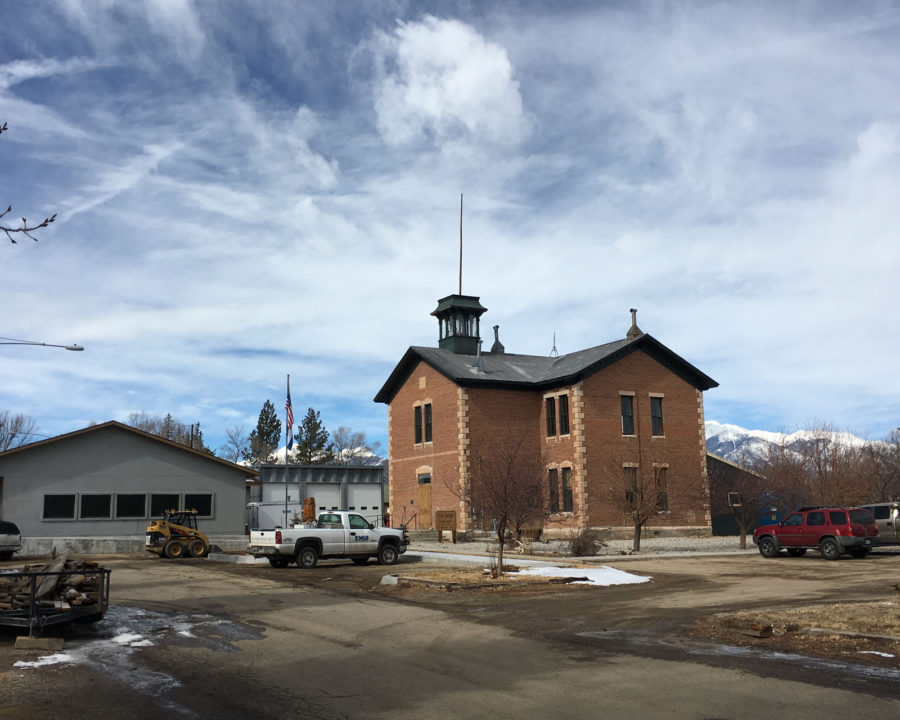The Local newsletter is your free, daily guide to life in Colorado. For locals, by locals. Sign up today!
If you’ve ever been skiing at Monarch Mountain or sand sledding at Great Sand Dunes National Park, there’s a good chance you’ve driven through Poncha Springs. At first glance, if you don’t hit the stoplight, it’s a pit stop town. There are gas stations, small restaurants, a lodge, and ski and snowboard rentals. That’s about it.
But it looks like the secret’s out about this town, which sits at the base of Monarch Pass and just moments from all the recreation Chaffee County has to offer. In 2016, the town approved 89 construction permits, and now it’s seeing a surge of growth. New houses, commercial spaces, tiny homes, and live/work units are popping up in the town’s three-square miles, around the intersection of highways 285 and 50.
That's only $1 per issue!
While other mountain towns are running out of room for new development, Poncha Springs still has lots of available land—and lots of potential, says town manager Brian Berger.
“There is not a set downtown,” Berger says. “As you drive along the highways, it’s not the most appealing. I think we’re headed in the direction to get something like that.”
As the Front Range continues to see massive population growth, people who have had enough of the traffic and long commutes to recreation have started moving to mountain towns, says Terry Alexander, managing partner of Salida-based LWP Development. His company recently finished the first of a three-phase housing project, Monarch Crossing, in Poncha Springs—townhomes that are also zoned commercial, so residents can live and work in one place.
“This area is very poised for all this new growth,” he says, noting that Salida, which is just five miles from Poncha Springs, has limited space for new development. “There’s a lot of energy there, a lot of likeminded people. It’s a very active community, same as Boulder. That’s what the allure is for a lot of us.”

Poncha Springs doesn’t have a school, a grocery store, or a bar—but it could one day. Zoning is friendly to developers, Alexander says, so the live/work units his company built at Monarch Crossing have a lot of potential. He sold one to an attorney who had a house and an office in Salida, but got rid of them both in favor of merging into one of the Monarch Crossing units, and another to an artist who plans to put a pottery studio on the first floor and live above it. The development is a short drive (or a nice bike ride) from Elevation Beer Company, and Berger says the area could one day become a walkable downtown Poncha Springs doesn’t currently have.
Right now, the post office serves as a central social hub for the town, says deputy town clerk Diana Heeney, who moved to Poncha Springs in 2003 and has worked for the town ever since. No one gets mail directly to their homes, she says, so everyone crosses paths at the post office to check their P.O. boxes.
Heeney says she likes that Poncha Springs is a small community that’s quieter than Salida. She’s been wondering herself why, all of a sudden, people are moving to her town. From 2000 to 2010, the population grew nearly 60 percent, from 466 to 737. The Census Bureau estimates that the town grew by just 40 people between 2010 and 2015, but that number could jump significantly in the next couple of years.
“I think the state of Colorado is growing and, residually, people are filling in other areas,” Heeney says. “People can work from home through the internet now. That provides the ability to live in a smaller town, and do a techy job, and still have the amenities of bicycling, rafting, and skiing, very close to Poncha Springs. I think that’s a big draw for our little town.”







